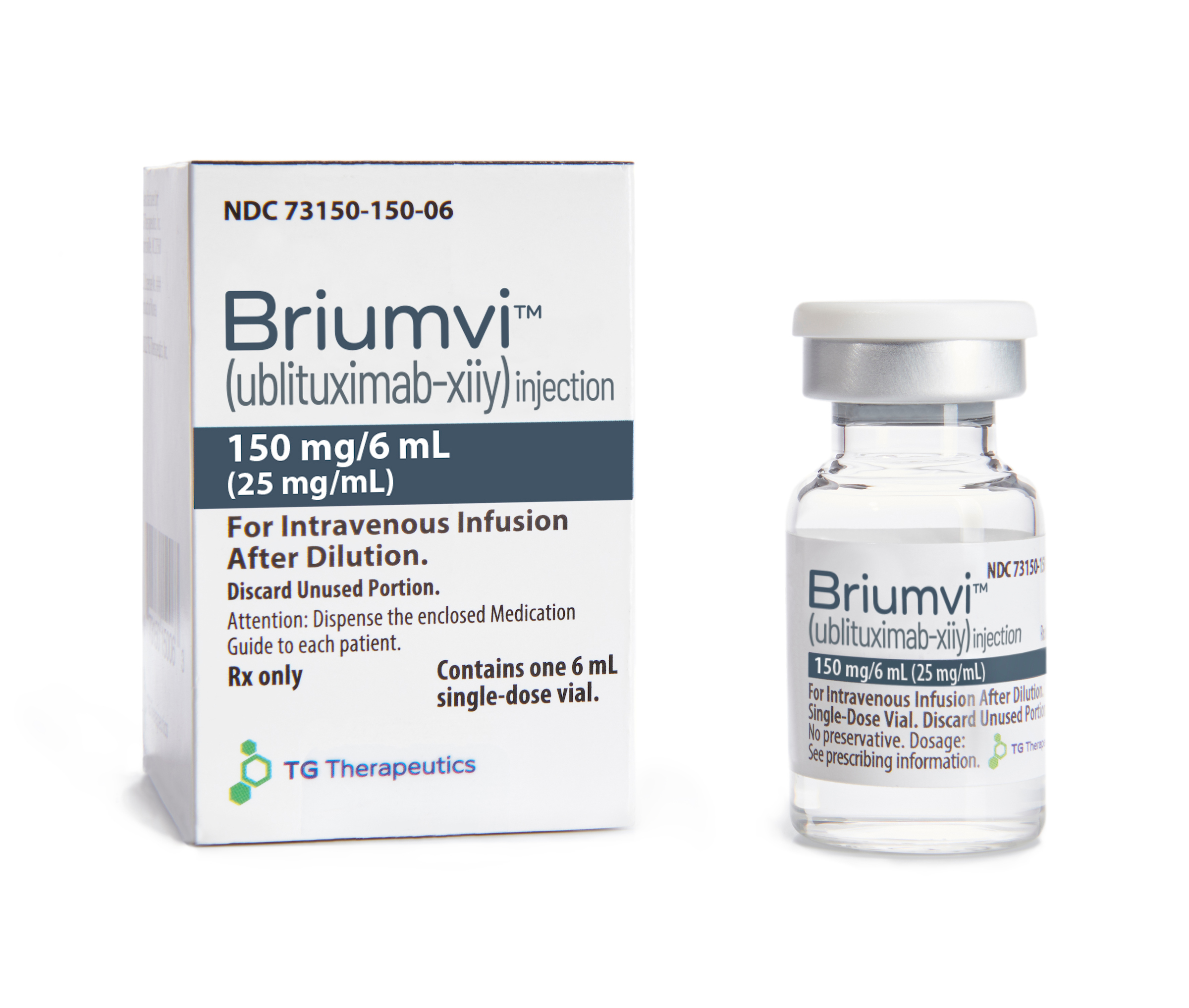The multiple sclerosis treatment arsenal has gained a new weapon. Shortly after Christmas, the U.S. Food and Drug Administration approved Briumvi (ublituximab), joining a small group of disease-modifying therapies that aim to halt MS progression by knocking out certain B-cells in the immune system.
Why does Briumvi target B-cells?
B-cells remember past threats to the immune system so that invaders, like viruses, can be stopped quickly. But some B-cells, carrying a protein called CD20, can also spark certain T-cells to proliferate. When that happens, these T-cells can attack healthy cells in the central nervous system and cause the inflammation and demyelination that are characteristic of MS.
Shorter infusions and better quality of life
Briumvi was engineered to be more potent than other anti-CD20 therapies, allowing for lower doses and shorter infusion times. A 450-mg infusion, delivered twice a year, takes only about an hour. That schedule and the short treatment time is a big deal in terms of life quality, particularly for young, busy people with MS.
Other DMTs approved by the FDA that attack CD20 B-cells are Ocrevus (ocrelizumab) and Kesimpta (ofatumumab). Ocrevus requires a twice-yearly, four-hour infusion of 600 mg. Kesimpta is a monthly 20-mg injection. As someone who has been treated with injections, as well as both one-hour and eight-hour infusions, my preference is hour-long infusions.
“The approval of Briumvi is wonderful news,” says June Halper, CEO of the Consortium of Multiple Sclerosis Centers,” in a news release from Briumvi’s developer, TG Therapeutics. “MS is most frequently diagnosed during the prime of a person’s life when they are just starting a career or beginning a family. The availability of anti-CD20s has launched a new era of high efficacy therapies for multiple sclerosis.”
A welcome addition
Briumvi should be available in the first quarter of this year. It will join about 20 other DMTs of varying benefits, side effects, and efficacy levels. I think this new, high-efficacy DMT, which has relatively minor side effects — such as infusion-related reactions, respiratory tract infections, herpes virus-associated infections, pain, insomnia, and fatigue — is worth discussing with your neurologist if you’re about to start, or are considering switching, a DMT.
(A version of this post first appeared as my column on the MS News Today website.)
(Featured image courtesy TG Therapeutics)



